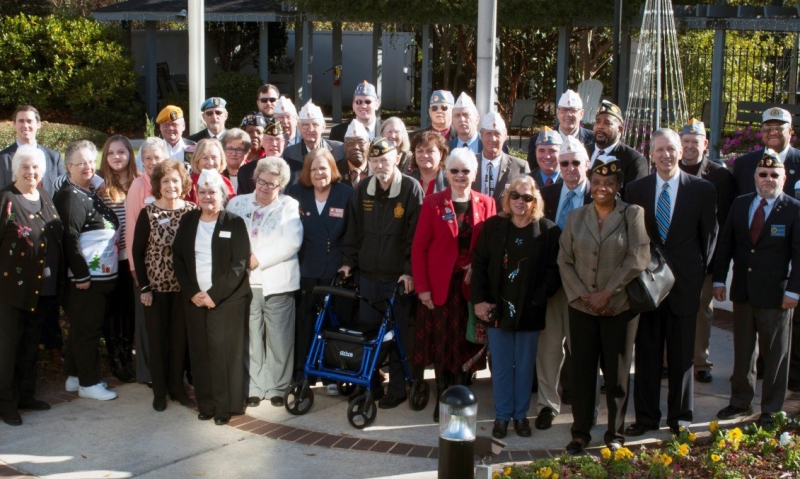
Department committee approves grants for VA to study improvements for PTSD, wound healing and prostate cancer.
As part of its support for veterans, The American Legion Department of Georgia has a Medical Research Committee that reviews and recommends grants submitted for research that benefit veterans and active duty servicemembers.
“Our concern for veterans health begins the day they join the military and follows them throughout their lives,” said Mark Shreve, a Legionnaire and chairman of the Medical Research Committee. “We focus on issues that our veterans are experiencing."
Each year the funds are raised for VA through the department Commander’s Project. Those funds are used to support veterans across Georgia at VA hospitals and clinics. The department has exceeded the goal, which is $100,000, for two consecutive years. The Medical Research team uses existing donations and new donations to support funding for research. The team reviews grants ranging from $5,000 to $15,000 for medical research and forwards recommendations to the department commander for approval, Shreve said.
Recently, the committee has recommended and received approval to fund research grants for post-traumatic stress disorder (PTSD), wound healing and prostate cancer. Regardless of the grant, the research takes place at the Charlie Norwood VA hospital in Augusta, Ga.
“Each year the VA research staff provides a briefing to the Medical Research Committee and interested Legionnaires on what their efforts have resulted in,” Shreve said. “So for prostate cancer, we provided seed money for the initial stage and that resulted in allowing the VA research team to publish their discoveries. Once other nonprofits and corporations saw the potential in the study, the funding began to increase from those resources. The VA research team attributes the initial success and expanded funding to the initial grant provided by The American Legion Department of Georgia.”
Another grant funds research to test whether there is a predetermined susceptibility to PTSD. While the testing is in the early stages, the committee recognized the potential.
“We felt it was absolutely necessary,” Shreve said. “We’re seeing that PTSD is a major problem throughout all services with our veterans. Some of the thoughts around this were if somebody was joining the military and there was a test that said, ‘Oh, this person is highly susceptibility to PTSD,’ then there can be something done at that point whether it’s job selection in the military or proactive mental health counseling with the focus on preventative treatment.”
The wound therapy research is still under way and Shreve believes that the committee will learn more about the findings in December during the department’s annual hospital visit. He said the study is looking into components of human fat that speed the healing of wounds, and whether they can be used as treatments.
The committee meets and reports on ongoing grants during the spring conference each year. It’s an initiative that the department sees as a small investment that could have major impact beyond the state of Georgia.
“We play a lead role because when we look at the overall picture we get information locally, state level but we’re also fed information nationally,” Shreve said. “And when we see an opportunity through a grant, or through the request for funding, we want to look at that opportunity from all those perspectives.”
- Veterans Healthcare

